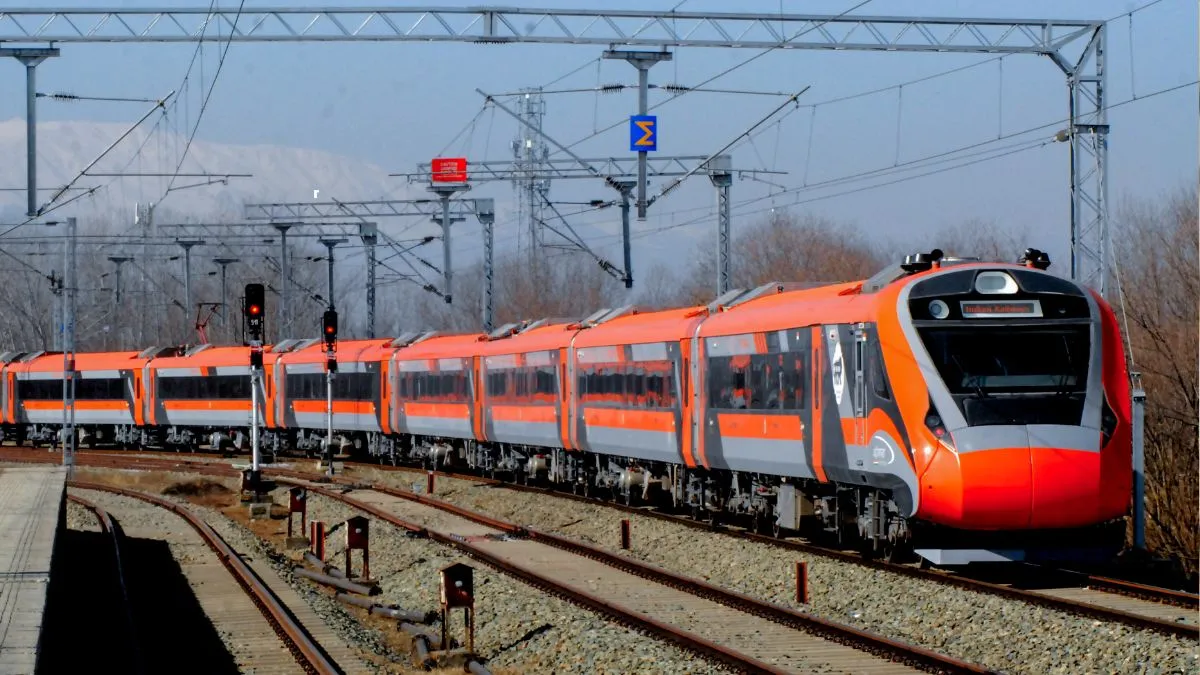- By Imran Zafar
- Thu, 27 Mar 2025 06:22 PM (IST)
- Source:JND
Vande Bharat Express to Kashmir: After multiple delays, Prime Minister Narendra Modi will finally flag off the Vande Bharat Express from Katra to Srinagar on April 19. The inauguration was initially scheduled for January 26 and later postponed to February 17. Union Railway Minister Ashwini Vaishnaw, Union Minister of State Dr. Jitendra Singh, Jammu and Kashmir Chief Minister Omar Abdullah, and Lieutenant Governor Manoj Sinha will also attend the event.
Decades Of Efforts To Connect Kashmir By Rail
The effort to bring a train to Kashmir has taken decades, involving the dedication of engineers, workers, and railway officials. The long-standing vision of establishing an uninterrupted railway link from Kashmir to Kanyakumari is now becoming a reality. Here’s how the project turned into reality:
Rail Link Expansion: Phased Approach
Currently, India’s railway network extends up to Katra, with trains from various parts of the country terminating at Katra Railway Station. The connection to Kashmir has been developed in five phases, with recent expansions linking Katra to Reasi and Reasi to Sangaldan. The MEMU train presently runs from Sangaldan to Baramulla, passing through Anantnag, Banihal, Qazigund, and Srinagar. With the integration of Katra to Reasi and Reasi to Sangaldan, the long-awaited railway connection to Kashmir has been completed.
USBRL: The Project Behind the Rail Link
The Udhampur-Srinagar-Baramulla Rail Link (USBRL) project played a crucial role in extending the railway network to Kashmir. This project includes remarkable engineering achievements such as the Chenab Bridge, which stands as the world’s highest railway bridge at 359 meters above the river. The Anji Khad Bridge, a cable-stayed structure, is another significant milestone, reaching a height of 331 meters.
The USBRL project took 70 years to complete, with 209 km of its total 272 km commissioned in multiple phases. The first phase, covering 118 km from Qazigund to Baramulla, was completed on October 4, 2009. The second phase, from Udhampur to Katra, spanning 25 km, was finished in July 2014. The third phase, a 48 km stretch from Banihal to Sangaldan, was completed in February 2024. The fourth phase, extending 46 km from Sangaldan to Reasi, is expected to be operational by June 2024. The final phase, covering 17 km from Reasi to Katra, is projected to be completed within three months after June 2024.
Vande Bharat Express: Trials and Approval
After the completion of all these phases, the Vande Bharat Express underwent rigorous trials on the new route to ensure its safety and operational feasibility. Following several test runs, the Railway Safety Commissioner gave the green signal for the train’s operation, paving the way for its official inauguration on April 19.
Challenges In Building Rail Link
The construction of the USBRL project faced several challenges over the decades. Engineers had to carve through the difficult Himalayan terrain, constructing 927 bridges and 37 tunnels to establish a seamless railway connection. One of the most challenging aspects was the T-1 tunnel near Vaishno Devi, where water leakage and debris posed significant obstacles. Engineers faced similar difficulties while constructing the Anji Khad and Chenab Bridges. The project required immense effort and perseverance, ultimately costing Rs 41,000 crore to complete.
With the inauguration of the Vande Bharat Express, Kashmir will be seamlessly connected to the rest of India, marking a historic milestone in the country’s railway expansion.

